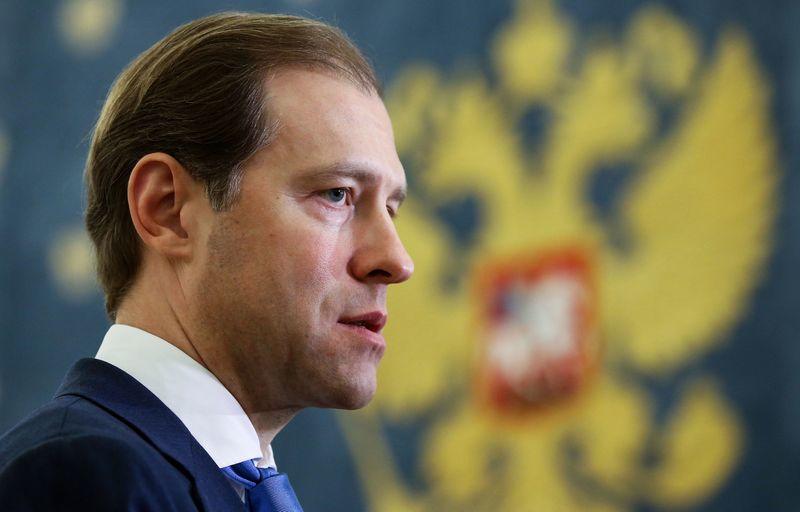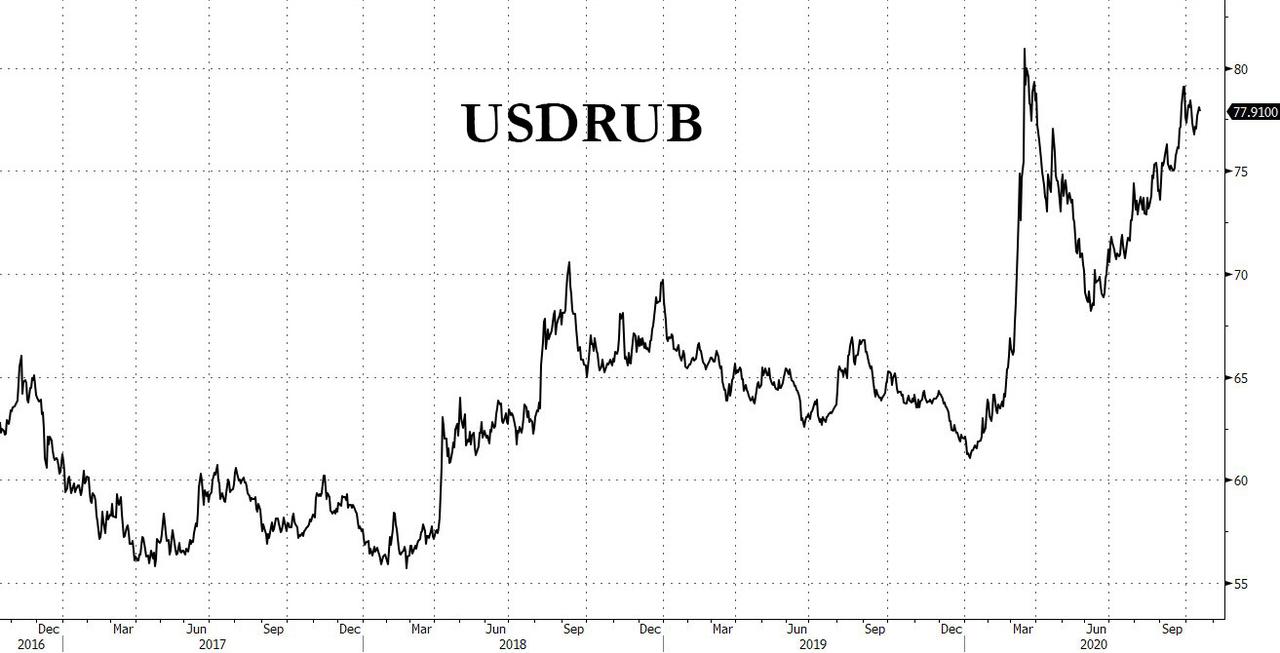Russian Trade Minister Celebrates Collapsing Ruble As “Awesome”
Tyler Durden
Sat, 10/17/2020 – 18:10
Over the past decade, western central banks have generated countless hours of derision, mocking and scorn because while it has become painfully obvious that their two primary objectives – pushing stocks higher and hammering the currency – have nothing to do with their stated objectives of full employment at stable prices, central bankers have been steadfastly stubborn in their baseless claims that what they do is for the greater good. So much so, that the very same Fed whose catastrophic monetary policies of the past decade have spawned the greatest wealth and class inequality in US history in their pursuit of weaker currencies and higher asset prices, are now actively pretending they are pursuing an end to racial inequality, which is nothing but pure propaganda to justify printing even more money until maybe one day, inequality somehow magically ends.
But there is one place where officials are not hypocritical about their true motives and desired outcomes: Russia, where the government minister in charge of getting companies to keep production at home thinks the ruble’s recent 20% plunge against the dollar is simply “awesome.”

In an interview with Bloomberg on Wednesday, the Russian Industry and Trade Minister Denis Manturov said that companies that don’t rely heavily on imports “are in a sweet spot right now.” He was referring to the plunge in the Russian currency: the ruble is one of the worst-performing currencies this year due to a slump in global oil prices and concern the U.S. and European Union may introduce new sanctions.
And while economy Minister Maxim Reshetnikov said in parliament Thursday that the currency is undervalued, while the central bank has warned the devaluation may push inflation above a 4% target, Manturov disagrees.
Anticipating the weakness of its currency, the Kremlin introduced measures to get companies to be less reliant on imports since US and European sanctions curbed Russia’s access to international markets in 2014. Manturov said three years ago that a ruble rate of 62 per dollar would be an optimal level for the policy to blossom.
And with the currency was trading near 78 per dollar…
… this has meant an even faster recovery for Russia’s export-oriented business. In fact, after a deep slump in the second quarter, the Russian economy bounced back over the summer after many lockdown restrictions were lifted. Industrial production will probably only shrink 4.5% for the full year, while manufacturing will contract 2%, Manturov said.
Of course, there is the possibility that the drop will only accelerate further as Russian virus infections have surged in recent weeks with daily tallies surpassing levels reached in the spring, although unlike in the West there is little discussion of a new round of shutdowns. Furthermore, unlike many western nations, Manturov said the government isn’t discussing any plans to prolong support measures for businesses. “We hope that the peak is over,” Manturov said. “The recovery was very quick in many industries.”
But what is more important to Russia is that its goods and services are now about 20% cheaper to its foreign trading partners than they were at the start of the year, resulting in a foreign-led demand boom.
The bottom line is that while every developed nation is now engaged in massive QE precisely in hopes of devaluing their own currencies to even a modest degree of what Russia has achieved, they will never admit to it (the BOJ for example has constantly stated that a weaker yen is not one of its policy intentions, just a boost to inflation… as if yen weakness isn’t a key driver of that). Which is why in a world of endless lies and constant hypocrisy, hearing at least one financial official admit the truth that it is “awesome” to see one’s currency collapse, is delightfully refreshing.

